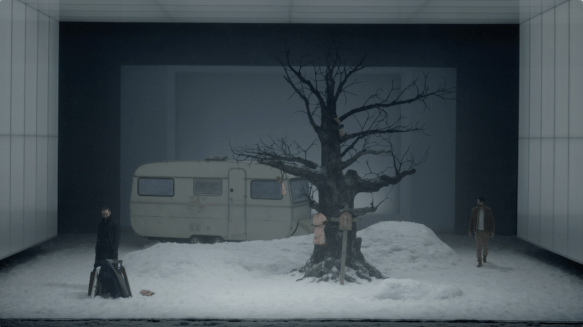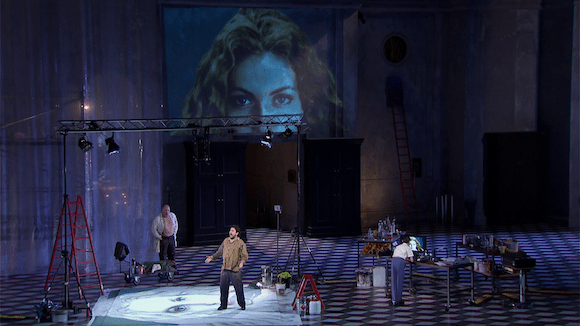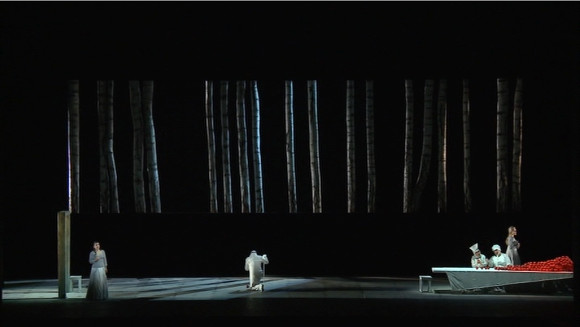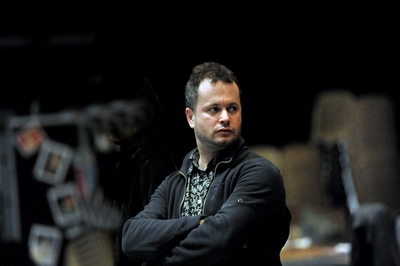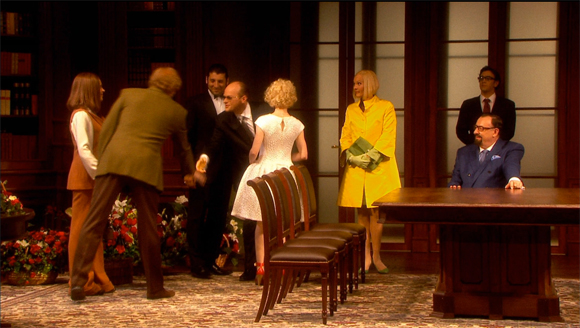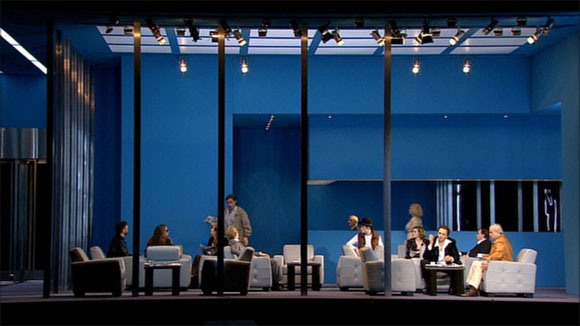Puccini’s Tosca is a work that seems to turn the boldest directors conservative. Up until now the only one I had seen that wasn’t set in Rome in 1800 was Philip Himmelmann’s production in Baden-Baden. That starred Kristine Opolais and so does Martin Kušej’s 2022 production at the Theater an der Wien. And like the Baden-Baden work this sets the piece in some sort of Christofascist dystopia but a very different one from Himmelmann.
